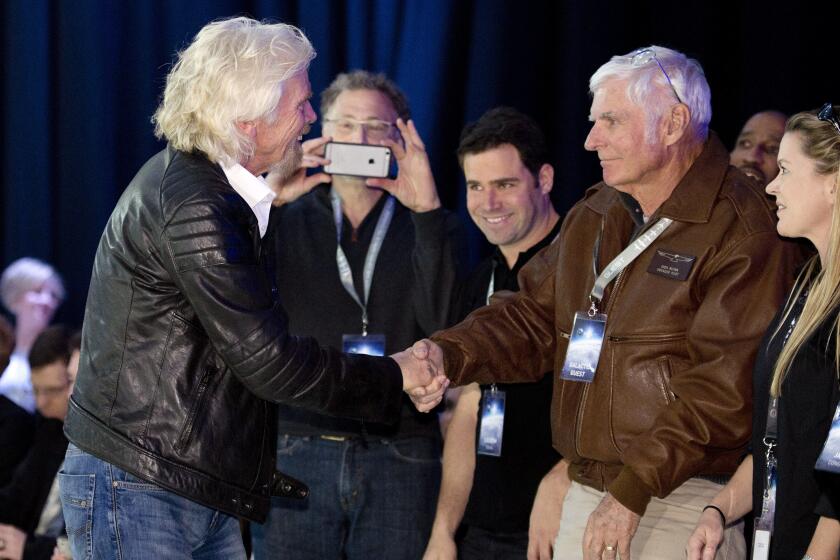Nations, Take Your Market: The Fight Is On
Report from the Marine boot camp of global competition. “It’s very tough. One reason the Japanese companies are good in world markets is that they’re tough with each other inside Japan, where the wars are really fought,” says John M. Trani, senior vice president of General Electric and head of its medical systems division.
That’s the division that made news last week because big and diversified General Electric--$37 billion in revenue--chose to trade a consumer electronics business with $3 billion in annual sales for a company in Europe that does $700 million in sales a year in X-ray equipment.
Why did it make such a trade? Because the $700 million in X-ray sales represents an opportunity in the international marketplace, while the $3 billion in consumer sales--TV sets, radios, VCRs--is all in the U.S. market. And GE understands that in today’s global competition a company can’t win by playing only in one market, always on the defense and trying to hold on to its customers as new competitors stream in from abroad. (There are, for example, 40 different TV set makers now vying in the U.S. market.) It must play offense, too--go after the other fellow’s customers on his home ground and gain the ability to support intense competition in one market with profit from another.
Medical Systems Led Market
Before Wednesday’s surprise deal with the French company Thomson, GE Medical Systems--which is based in Milwaukee--led the U.S. market with more than $1.2 billion in sales of diagnostic imaging equipment. That’s the whole range of devices that look inside the human brain and body--CT (for computerized tomography) scanners, ultrasound, magnetic resonance and X-ray machines.
In addition, GE has been selling in Japan for 10 years and manufacturing there for the last five. It now has a $300-million sales position in the Japanese market--second in some product lines to the leader Toshiba--through a venture with Yokogawa Electric, in which GE is a 75% owner and controls the technology.
The Thomson deal adds a strong position in Brazil, where the French company was a leader, and a substantial base in Europe, where GE challenges Siemens of West Germany and Philips of Holland.
Diagnostic imaging, which totals $6 billion in worldwide sales, is a business of great promise as medicine finds ways to diagnose illnesses without surgical probing.
But not an easy one. The U.S. market has become tougher in recent years as hospitals have had to control their costs. “So we have to keep a close watch on costs and prices while still developing the technology,” says GE’s Trani.
And for that there’s no better practice field than Japan. The key to Japanese business, according to Trani, a 42-year old engineer who learned international competition in GE’s radio and stereo division, “is a desire to drive costs and prices down and expand the marketplace. They introduce products at a faster pace than companies in the United States--driving the market through new features and costs down through product development.”
A company that isn’t in that market misses out on experience. But, for all its internal competitiveness, Japan doesn’t welcome outsiders. Except in rare instances, a foreign company is forced to hook up with a Japanese partner--and to watch that it doesn’t find that partner adapting its technology and becoming a competitor.
“Don’t go into a joint venture where you don’t control the pace of technology,” says a top GE official. The company’s chairman, John F. Welch Jr., figured that GE could no longer hope to control the pace of technology in television. But in medical equipment it sets the pace and can go for world market leadership.
That global perspective, moreover, reflects a healthy trend. More American companies are seeing the world as the only market and are refusing to take second place. The U.S. semiconductor firms Motorola and Intel, for example, are demanding real access--rather than lip service--in Japan’s market. And the U.S. Senate, in the trade bill it approved last week, seeks less to protect the U.S. market as to pry open foreign ones.
In the global marketplace, in other words, you can run but you can’t hide.






